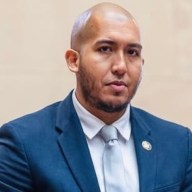By Adam Pincus
DNA provided by Edgar Munera, 42, following his 2003 conviction for the rape of a 12-year-old Florida girl, led him to admit his guilt in the Queens case, according to the Queens district attorney's office.Munera, who according to Florida court documents is originally from Cuba, entered his guilty plea before Justice Barry Kron of the Queens Supreme Court, who indicated he would sentence him to 15 years at a hearing scheduled for June 14.Munera's attorney, Harold Ehrentreu, was circumspect on the plea deal. Commenting Friday in a phone interview on his client's view of the possible sentence he said “if he thought it was reasonable, then it was reasonable.” Queens District Attorney Richard Brown said in a statement that he hoped the plea would provide some comfort to the sisters that the man accused of assaulting them would remain behind bars. He also praised the DNA database which helped solve the case. “The defendent's guilty plea was a direct result of an ongoing initiative involving unsolved rape cases in which convicted sex offenders are required to submit their DNA,” Brown said.Brown said that according to the charges, the two girls, then ages 10 and 17, were alone in their home at 5 a.m. on July 29, 1997, when Munera, wearing a ski mask, broke in. Their parents were out of the house working. He began to sexually abuse the 10-year-old. She began screaming and that drew her older sister to her aid. According to the charges, Munera then held a pair of scissors to the neck of the older sister and gagged both of them. He then sexually assaulted the 17-year-old and fled.The DA said that Munera then left for Florida.According to the Florida attorney general's records, Munera was picked up on Halloween in 2000, accused of raping a 12-year-old Florida girl in her home. He was convicted three years later and sentenced in January 2003 to life in prison.Following his conviction, he was required by law to provide a DNA sample that was entered into the FBI's national database, Combined DNA Index System, known as Codis. The DNA from a convict is put into the system and each new profile can be exchanged and compared with unsolved crimes. Federal, state and local crime labs can share information through the Codis program.According to the Queens DA, the DNA Prosecutions Unit has convicted 12 serial rapists and approximately two dozen other men for a variety of sex crimes since the process became operational in 1998. Reach reporter Adam Pincus by e-mail at news@timesledger.com or by phone at 718-229-0300, Ext. 157.































